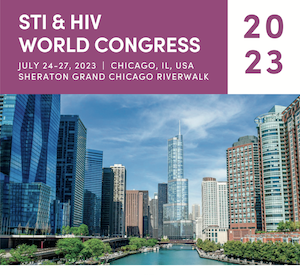Behavioral & Social Science
Session: HIV PrEP, Viral STIs
O5.6 - Knowledge and acceptability of Human Papillomavirus vaccination for young adult women in rural Mysore District, India: a qualitative study
Tuesday, July 25, 2023
15:45 - 16:00 CST
Location: Chicago 9

Kate Coursey (she/her/hers)
Medical Student
David Geffen School of Medicine at UCLA
Los Angeles, California, United States
Primary Presenter(s)
Background
India has the highest number of estimated deaths from cervical cancer, with most cases attributed to Human papillomavirus (HPV). The World Health Organization recommends primary HPV vaccination for girls ages 9-14, with catch-up vaccination for young women ≥15 if cost-effective. While cost previously prevented widespread uptake, India authorized a new, inexpensive HPV vaccine in 2022. Given anticipated vaccine expansion, we qualitatively explored potential barriers/facilitators to catch-up vaccination for young women ages 18-26 in rural India. Perspectives were elicited from women themselves and from men, who may influence women’s vaccine uptake.
Methods
Gender-stratified, audio-recorded focus group discussions (FGDs) were conducted with men and women ages 18-26, recruited from randomly selected villages in Mysore District through convenience sampling with assistance from community health workers (CHWs). Participants received education about cervical cancer, HPV, and HPV vaccination during FGDs. Audio recordings were transcribed and translated to English. Using rapid analytic approach, two authors independently summarized each FGD with a pre-developed template; combined summaries were transferred into matrices for thematic analysis.
Results
Fifty-two young adults (female=31, male=21) participated in seven FGDs from September 2022-November 2022. Average age was 23 years, 65% were married, and all completed high school. Only 28% had heard of cervical cancer, and 6% knew of the HPV vaccine. Several potential barriers to HPV vaccination for young women emerged: 1) fear of side effects, particularly infertility; 2) cost; 3) low perceived risk of HPV for unmarried women; and 4) STI-related stigma. Facilitators included 1) vaccine recommendation from trusted community persons, particularly CHWs, rural childcare center teachers, and doctors; 2) vaccine administration at government centers instead of private clinics; 3) knowing other young women who received the vaccine; and 4) support from parents, husbands, and in-laws. Themes were similar between men and women; men additionally expressed trust in village chiefs’ recommendations.
Conclusion
Participants demonstrated poor knowledge of cervical cancer and HPV, highlighting the need for awareness campaigns that target young women and families, address safety concerns, and mobilize local stakeholders. Providing free HPV vaccination at government centers through India’s national immunization program would maximize catch-up vaccination among rural young women.
India has the highest number of estimated deaths from cervical cancer, with most cases attributed to Human papillomavirus (HPV). The World Health Organization recommends primary HPV vaccination for girls ages 9-14, with catch-up vaccination for young women ≥15 if cost-effective. While cost previously prevented widespread uptake, India authorized a new, inexpensive HPV vaccine in 2022. Given anticipated vaccine expansion, we qualitatively explored potential barriers/facilitators to catch-up vaccination for young women ages 18-26 in rural India. Perspectives were elicited from women themselves and from men, who may influence women’s vaccine uptake.
Methods
Gender-stratified, audio-recorded focus group discussions (FGDs) were conducted with men and women ages 18-26, recruited from randomly selected villages in Mysore District through convenience sampling with assistance from community health workers (CHWs). Participants received education about cervical cancer, HPV, and HPV vaccination during FGDs. Audio recordings were transcribed and translated to English. Using rapid analytic approach, two authors independently summarized each FGD with a pre-developed template; combined summaries were transferred into matrices for thematic analysis.
Results
Fifty-two young adults (female=31, male=21) participated in seven FGDs from September 2022-November 2022. Average age was 23 years, 65% were married, and all completed high school. Only 28% had heard of cervical cancer, and 6% knew of the HPV vaccine. Several potential barriers to HPV vaccination for young women emerged: 1) fear of side effects, particularly infertility; 2) cost; 3) low perceived risk of HPV for unmarried women; and 4) STI-related stigma. Facilitators included 1) vaccine recommendation from trusted community persons, particularly CHWs, rural childcare center teachers, and doctors; 2) vaccine administration at government centers instead of private clinics; 3) knowing other young women who received the vaccine; and 4) support from parents, husbands, and in-laws. Themes were similar between men and women; men additionally expressed trust in village chiefs’ recommendations.
Conclusion
Participants demonstrated poor knowledge of cervical cancer and HPV, highlighting the need for awareness campaigns that target young women and families, address safety concerns, and mobilize local stakeholders. Providing free HPV vaccination at government centers through India’s national immunization program would maximize catch-up vaccination among rural young women.

